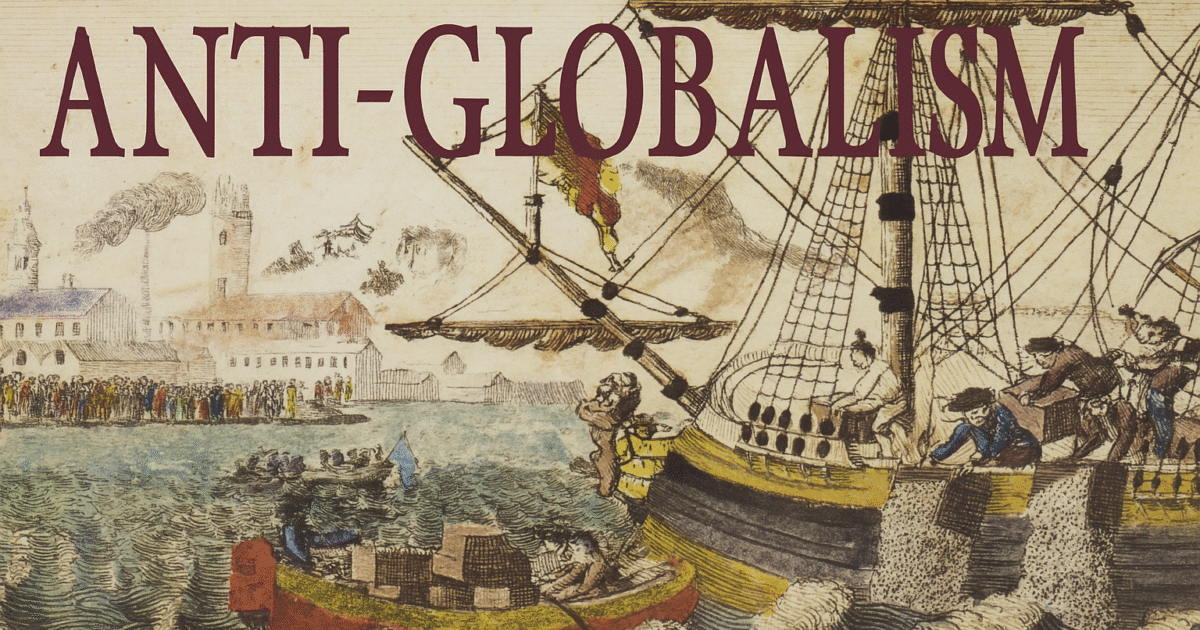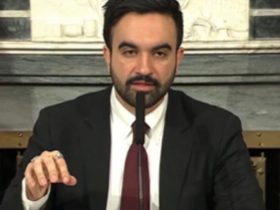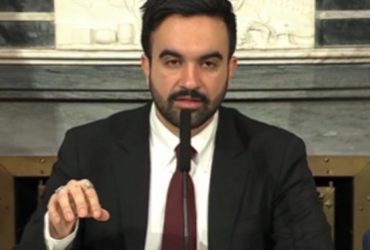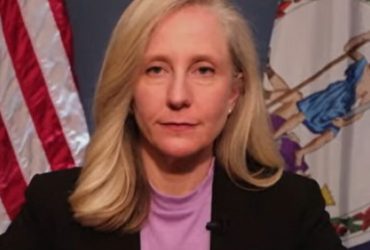Modified version of “The Destruction of Tea at Boston Harbor,” originally published by Nathaniel Currier, c. 1846. Image in the public domain. Text “ANTI-GLOBALISM” added by Antonio Graceffo via AI-generated editing (2025).
The Trump administration’s refusal to sign recent amendments to the World Health Organization’s pandemic treaty drew criticism from the political left, but this decision fits into a long-standing American tradition of rejecting international agreements that could undermine U.S. sovereignty.
Throughout history, and especially under President Trump, the United States has opposed transnational organizations and treaties that threaten to override domestic law, bypass Congress, or cede authority to foreign institutions.
During his first term (2017–2021), President Trump withdrew the United States from several key international agreements. On his third day in office, he pulled out of the Trans-Pacific Partnership (TPP), arguing that the deal would cost 2.7 million American jobs by 2025 and weaken U.S. manufacturing. Trump said the treaty would “hamstring” American industry and preferred bilateral trade deals that better protected American workers.
In June 2017, Trump announced the U.S. withdrawal from the Paris Climate Agreement, stating, “I was elected to represent the citizens of Pittsburgh, not Paris.” He argued the accord imposed unfair economic burdens on the United States while giving countries like China a pass. Trump viewed it as a threat to American sovereignty and energy independence.
Later that year, in October 2017, the administration announced its decision to leave UNESCO, citing the agency’s “anti-Israel bias,” specifically referencing UNESCO’s 2011 admission of Palestine as a full member and the resulting financial disputes. The withdrawal became effective in December 2018.
In May 2018, Trump exited the Joint Comprehensive Plan of Action (JCPOA), also known as the Iran nuclear deal. He called it one of the worst agreements the U.S. had ever entered, claiming it enriched Iran, enabled hostile activity, and merely delayed rather than stopped Iran’s nuclear weapons development.
One month later, in June 2018, the U.S. left the United Nations Human Rights Council. The Trump administration, led by Ambassador Nikki Haley, condemned the council as hypocritical and biased against Israel. Critics pointed to the presence of human rights violators like China, Saudi Arabia, Cuba, and Venezuela on the council, some even holding leadership roles.
In 2015, Saudi Arabia chaired the Advisory Committee; in 2020, China joined the group selecting rights investigators; and in 2023, Iran chaired a forum on promoting human rights through technology. These appointments reinforced Trump’s argument that the council rewarded abusers while ignoring their violations.
In July 2020, the administration notified the UN of its intention to withdraw from the World Health Organization (WHO), citing its mishandling of the COVID-19 pandemic and its deference to China during the early stages of the outbreak. The administration accused the WHO of spreading misinformation about the virus and failing to enact necessary reforms.
During his second term (2025), President Trump again withdrew from the WHO, this time in response to newly proposed amendments that would allow the organization to impose global mandates, such as lockdowns and vaccine passports, without U.S. consent. The administration stated the treaty would bypass Congress and erode American constitutional protections.
In February 2025, the United States withdrew from the UN Human Rights Council for a second time, again citing anti-Israel bias. That same month, the Trump administration halted all U.S. funding to the United Nations Relief and Works Agency for Palestine Refugees (UNRWA), citing ties between UNRWA staff and Hamas, as well as broader concerns about the agency’s operations.
Also in 2025, the Trump administration announced a global rollback of USAID programs, eliminating more than 90% of foreign aid contracts and cutting $60 billion in assistance worldwide.
The move, framed under the “America First” agenda, aimed to reduce overseas commitments and redirect resources to domestic priorities. In an executive order, Trump stated that many foreign aid programs were “antithetical to American values” and accused them of destabilizing peace by promoting harmful ideologies.
Specific cuts targeted funding for DEI and LGBTQ initiatives abroad, including $1.5 million for LGBTQ employment programs in Serbia, $70,000 for a DEI musical in Ireland, $47,000 for a transgender opera in Colombia, and $3.3 million for LGBTQ advocacy in the Caribbean.
The administration also cited concerns over USAID grants allegedly linked to groups under investigation for ties to terrorism. According to the State Department, the cuts were part of a broader effort to eliminate “waste” and ensure taxpayer money advanced U.S. interests rather than foreign ideological agendas.
Trump also refused to sign several international agreements during his presidency. In 2017, his administration rejected the Global Compact for Migration, a non-binding UN agreement aimed at coordinating international migration policy. Then–Secretary of State Rex Tillerson said the pact could undermine the United States’ sovereign right to enforce immigration laws and secure its borders.
In 2019, Trump “unsigned” the Arms Trade Treaty, which regulates the international trade of conventional weapons. He argued the treaty threatened Second Amendment rights and stated, “We will never surrender American sovereignty to anyone.”
This tendency long predates Trump. But under Trump, it is clear that the priority is America First, not the Globalist Agenda First.
The post Antiglobalism Didn’t Start with Trump: The U.S. Has Always Defended Its Sovereignty appeared first on The Gateway Pundit.











